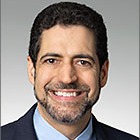Government Bid to Shut Down Challenge To No Fly List Grounded
As memories of 9/11 continue to fade, courts are increasingly becoming bolder and more confident in asserting their oversight role over national security matters. Last week’s Sixth Circuit ruling in Mokdad v. Lynch is the most recent example. There the Court of Appeals determined that district courts have jurisdiction to hear a plaintiff’s challenge to suspected inclusion on the No Fly List.
As memories of 9/11 continue to fade, courts are increasingly becoming bolder and more confident in asserting their oversight role over national security matters. Last week’s Sixth Circuit ruling in Mokdad v. Lynch is the most recent example. There the Court of Appeals determined that district courts have jurisdiction to hear a plaintiff’s challenge to suspected inclusion on the No Fly List.
A bit of background. Saeb Mokdad, a naturalized United States citizen, had been prevented from flying on several occasions. Believing himself to be on the No Fly List, he sought redress through the Department of Homeland Security’s (DHS) Traveler Redress Inquiry Program. In response, DHS did not admit Mokdad was on any list; rather, it blandly said that it reviewed agency records and determined that no change was warranted: “[i]n response to [your] request, we have conducted a review of any applicable records in consultation with other federal agencies, as appropriate. It has been determined that no changes or corrections are warranted at this time.” That is bureaucratic speak for “take a hike and have a nice day.”
Unsurprisingly, Mokdad was not satisfied by the government’s rebuff. So he sued the Attorney General, the FBI Director, and the Terrorist Screening Center (TSC) Director in federal district court for injunctive and declaratory relief. He argued, first, that his Fifth Amendment rights were violated and that he was given no meaningful post-deprivation hearing; and second, that the act of placing him on the No Fly List was unlawful under the Administrative Procedure Act as arbitrary and capricious.
The U.S. government moved to dismiss for lack of subject matter jurisdiction, citing §46110(a), which says: "[A] person disclosing a substantial interest in an order issued by the Secretary of Transportation … in whole or in part…may apply for review of the order by filing a petition for review in the United States Court of Appeals for the District of Columbia Circuit or in the court of appeals of the United States for the circuit in which the person resides or has its principal place of business."
Section 46110(c) also makes clear that the appeals court has exclusive jurisdiction and that its review is very limited in nature—limited to examining whether the findings of fact by the agency were supported by substantial evidence. In response, Mokdad argued that § 46110 does not divest the district court of subject-matter jurisdiction over his claims because he was not challenging TSA’s denial of boarding or redress letter issued to him, but rather his underlying placement on the No Fly List—a placement made by TSC, which is not one of the agencies enumerated in § 46110.
The district court dismissed for lack of subject-matter jurisdiction, and Mokdad appealed to the U.S. Court of Appeals for the Sixth Circuit. The Court held that to the extent Mokdad is challenging the adequacy of the redress procedures, TSA must be added as a required party. The Court dismissed those claims without prejudice to give Mokdad the chance to fix that defect.
As to Mokdad’s challenge to his alleged inclusion on the No Fly List itself, however, the Court squarely rejected the Government’s argument that the district court lacked jurisdiction. The Court held that the decision of TSC to place a person on the list is not covered by § 46110, and that although a plaintiff is required to exhaust his administrative remedies through TSA before suing TSC, Mokdad had done so. Thus Mokdad could proceed against TSC and challenge his alleged placement on the No Fly List.
The Court rebuffed the arguments that the claims against TSA and TSC were “inescapably intertwined.” The Court explained that to hold otherwise would not only be inconsistent with existing law but also “would run the risk of inadvertently expanding the number and range of agency orders that might fall under exclusive-jurisdiction provisions that Congress did not intend to sweep so broadly.”
The Court here is saying that, even though this involves national security issues, judges have a role to play, and if Congress wants to restrict their oversight, it needs to be clear and precise in doing so. In the immediate aftermath of 9/11, we rarely saw seen this type of judicial backbone. Deference was the theme of the day. Fourteen years later, that mindset is slowly but surely fading away.
It will be interesting to see how Mokdad’s challenge to his alleged inclusion on the No Fly List proceeds in district court–especially given that the Government has never admitted, and appears unwilling to admit, that Mokdad is on the List. Beyond this case, it will also be interesting to see whether courts allow plaintiffs two bites at the apple: one in district court challenging alleged inclusion on the No Fly List, and § 46110 actions which are filed directly in the court of appeals challenging TSA’s denial of boarding.






